- Home
- Kay Hooper
Once a Thief Page 3
Once a Thief Read online
Page 3
He was perfectly charming during dinner, then afterward asked if she’d like to go to his museum and see the latest Egyptian exhibit, which wasn’t scheduled to go on display for several days. It wasn’t exactly “Come up and see my etchings,” but since she’d recognized the look that went along with the casual offer, it was enough to make her wary.
Still, she wanted to see the exhibit; the hours she put in overseeing her own forthcoming exhibit would make a visit during regular hours somewhat of a problem. And she was confident of her ability to handle an amorous curator. There would be security guards, in any case.
“That’s funny,” her date murmured as he used his key and let them in a side door.
“What?”
“The security light in this hall should be—”
It should have been on, Morgan knew, but her escort never got a chance to finish his sentence. They had taken no more than three steps into the dark hallway when he suddenly let out a soft grunt and crumpled to the floor.
Morgan was never sure afterward if she knew what had happened in that first instant or if, in the thick blackness surrounding her, pure survival instinct had taken over. She didn’t reason that Peter’s limp body had fallen between her and the door, preventing that exit; she simply whirled and bolted down the hallway.
After half a dozen steps she managed to kick her heels off without losing much speed, and her instantly quieter passage made it possible for her to hear the pursuing footsteps—fast and heavy, and all too close behind. She had the advantage of knowing the museum well; like many archaeologists, she considered the storehouses of ancient treasures as alternate homes and tended to spend many of her off hours losing herself in the past.
That was what she wanted badly to do now—lose herself in the past. She was making her way with all the speed she could muster out of the warren of offices and storerooms and into the larger rooms of the museum proper. There was a drawback to that action, but she had little choice. Most of the exhibits were individually lighted, which would make her visible to her pursuer unless she could hide before he emerged from the hallway. As she turned the final corner, she could see the dim glow ahead.
The first cavernous room she burst out into was a hall of paintings offering no place of concealment. Barely feeling the cold, hard marble beneath her feet, Morgan darted through one of the two big archways without immediately knowing why she’d made the choice. Then she realized. There had to be more than one of them and they’d be after the most portable valuables, wouldn’t they? Jewelry, then—and a large display of precious gems lay in the direction she hadn’t chosen.
Along her route were several larger and less valuable—to the thieves—displays of statuary, weapons, and assorted artifacts, many large enough to offer a hiding place.
She made another desperate turn through an archway that appeared to house a room dimmer than some of the others—and found herself neatly caught. A long arm that seemed made of iron rather than flesh lifted her literally off her feet, clamped her arms to her sides, hauled her back against a body that had all the softness of granite, and a big, dark hand covered her mouth before she could do more than gasp.
For one terrified instant, Morgan had the eerie thought that one of the darkly looming statues of fierce warriors from the past had reached out and grabbed her. Then a low voice hissed in her ear, and the impression of supernatural doings faded.
“Shhhh!”
He wasn’t a security guard. The hand over her mouth was encased in a thin, supple black glove, and as much of his arm as she could see was also wearing black. Several hard objects in the vicinity of his waist dug into her back painfully. Then he pulled her impossibly closer as running footsteps approached, and she distinctly felt the roughness of wool—a ski mask?—as his hard jaw brushed against her temple.
She didn’t struggle in the man’s powerful embrace, although she couldn’t have said just why. Instead, she concentrated on controlling her ragged breathing so that it wouldn’t be audible, her eyes fixed on the archway of the room. She realized only then that she’d bolted into a room with only one entrance. Her captor had literally carried her back into a corner and in the shadows behind one of the fierce warrior statues, and she doubted they were visible from the doorway.
The footsteps in the hall slowed abruptly, and she caught a glimpse of a rather menacing face further distorted by an angry scowl as her pursuer looked into the room. She stiffened, but he went on without pausing more than briefly. As the footsteps faded, she began to struggle; the steely arm around her tightened with an additional strength that nearly cracked her ribs.
Three breathless seconds later, she realized why.
“Ed.” The voice, low and harsh, was no more than a few feet down the hallway.
Morgan went very still.
There was an indistinguishable murmur of at least two voices out there, and then the first voice became audible—and quite definitely angry.
“I thought she came this way. Dammit, she could be anywhere in this mausoleum—the place is huge!”
“Did she get a look at you?” Ed’s voice was calmer.
“No, the hall was too dark. When I tapped her boyfriend to sleep, she ran like a rabbit. Why the hell did he have to pick tonight to come here? If he wanted romance, he should have taken her to his place. Judging by what I saw of her, she’d have kept him busy between the sheets for a week.”
Feeling herself stiffen again, this time indignantly, Morgan was conscious of an absurd embarrassment that the man holding her so tightly against him had heard that lewd comment.
“Never mind,” Ed said impatiently. “We’re covering all the doors, so she can’t get out, and the phone lines have been cut. She dropped her purse back there, right? Check to see if she had a cell phone, and if she did, trash it. Then go back to your post and wait. We’ll be finished in another half hour and out of here. She’ll be locked in until morning, so she can’t do us any harm.”
“I don’t like it, Ed.”
“You don’t have to like it. And stop using my name, you fool. Do what I said and get back to your post.”
There was a moment of taut silence, and then Ed’s unhappy minion passed the archway on his route back to his post, an even more distorted scowl darkening his face.
Morgan heard his footsteps fade into silence; strain as she would, she couldn’t hear anything from Ed. At least five minutes must have passed, with agonizing slowness, before her captor finally relaxed slightly and eased her down so that her feet touched the cold floor. His voice sounded again, soft and no more than a sibilant whisper, next to her ear.
“I’m not going to hurt you. Understand? But you have to be still and quiet, or you’ll bring them down on us.”
Morgan nodded her understanding. As soon as he released her, she took half a step away and turned to confront him. “If you aren’t with them, what are you—” she began in a whisper, then broke off as the question was answered.
He was a tall man, at least two or three inches over six feet, with wide shoulders and a wiry look that spoke of honed strength and feline grace rather than muscled bulk. She’d felt that strength. Enveloped in black from head to foot, he had a compact and very efficient-looking tool belt strapped to his lean waist. And from the black ski mask gleamed, almost catlike, the greenest pair of eyes she’d ever seen.
“Oh.” She knew, then, what he was doing here. “Oh, Christ.”
“Not nearly,” he murmured.
Morgan felt a burst of pure irritation at his ill-timed humor but somehow managed to keep her voice low. “You’re just another thief.”
“Please.” He sounded injured. “Such a commonplace word. An ugly word, even. I prefer to call myself a privateer.”
“Wrong,” she snapped, still in a low voice that would have been inaudible a couple of feet away. “This isn’t a ship on the high sea, and we aren’t at war. You’re a common, ordinary, run-of-the-mill criminal.” She could have sworn those vivid green eyes gleamed with s
heer amusement.
“My dear young woman,” he said, that same emotion threaded through his soft, unaccented voice, “I am neither common nor ordinary. In fact, I’m one of the last of a vanishing breed in these uncomfortably organized, high-tech days. If you must attach a noun to me, make it cat burglar. However, I’d much rather you simply called me Quinn.”
Wolfe hesitated for a long time before he made the call, but when he did, it hardly surprised him that Max Bannister answered on the second ring. He might be on his honeymoon, but few people even had his cell-phone number, and fewer still would have dared to interrupt said honeymoon.
“Tell Dinah I said I’m sorry,” Wolfe told Max.
“You lucked out,” Max responded, dry. “She’s asleep. It’s a bit late over here.”
Wolfe checked his watch, did a bit of math, and winced. “Sorry.”
“Never mind. I was awake, actually. What’s up?”
“The hell of it is . . . I’m not sure how to answer that. Morgan’s worried, Max, and she has me worried.”
“About?”
“I’d like to believe we’re both just jumping at shadows, but I think it’s more than that. Something’s off at the museum. The feel of the place is wrong.”
“That’s pretty nebulous.”
“No kidding. Morgan felt it first, but I’m feeling it now. It’s like the place is haunted. If I didn’t know better, I’d swear we’ve had somebody other than security moving around inside after hours.”
“Any solid evidence to prove that?”
“Not a shred.”
“And nothing’s been taken.”
“No. Look, Max, you know I’m not an alarmist. But if somebody is inside already, then we’ve got a big problem. There’s no way I can authorize the transfer of the collection, not if I have any doubt at all as to the security of the building.”
“The new security system isn’t in yet, right?”
“No, not yet.”
Max was silent for a moment, then said, “It’s still weeks before the collection will be moved. I say we get the new security system up and running, which is supposed to be designed to plug any holes in the existing security net. In the meantime, you and Morgan are authorized to take any steps you deem necessary to secure the building. Hire more guards, somebody to do an electronics sweep, whatever it takes. I’ll clear it with Ken Dugan and the board of governors.”
“You know Dugan will agree to anything if it means he’ll have the Bannister collection on exhibit here. Major career points for any head curator.”
“The board won’t argue either. I’ll finance any extra security measures and guarantee that the museum will be better off even after the exhibit closes.”
“That’s a dangerous guarantee. The city’s crawling with thieves, Max.”
“So I’ve heard. Including a new gang the police can’t seem to get a line on.”
“Yeah, they’ve looted a couple of places already. If they aren’t stopped, I don’t doubt they’ll target your collection.”
Max chuckled. “My money’s on you and Morgan.”
“Yeah—literally.” Wolfe sighed. “I’ll talk to Morgan first thing tomorrow morning. Between us, we’ll figure out a way to lock the place down tight.”
“I know you will. Keep me informed, okay?”
“You’ve got it. But I promise not to intrude on your honeymoon any more than I have to.”
“I’d appreciate that.” Max said his good-byes and ended the call, slowly closing his cell phone.
Dinah, who had been wide awake the entire time, said musingly, “I never realized you could be so deceptive.”
“I just told him you were asleep. A small white lie to make him feel better.”
“It didn’t make you feel better. You don’t like lying to him, do you?”
“Of course not.”
“Especially about the collection baiting a trap.”
“Especially that.” Max sighed.
“Trouble’s coming, isn’t it?”
“Yes. Yes, I’m afraid it is. And soon.”
Morgan stared at him. Quinn? Quinn. She knew of him. God, of course she knew of him. For nearly ten years, the name of Quinn—along with assorted aliases and journalistic nicknames in various languages—had been synonymous with daring, nerveless theft at its most dramatic.
If the newspapers were to be believed, he had smoothly robbed the best families of Europe, relieving them of fine baubles and artworks with a delicate precision and finicky taste that made the cat in his preferred noun an apt choice. And in so doing he had bypassed some of the most expensive and complicated security systems ever designed with almost laughable ease.
Also according to the newspapers, he never used weapons, had never injured anyone, and had never come close to being caught—all of which made him something of a folk hero.
“Hell,” Morgan said.
“Not yet.” He seemed even more amused. “I see that my reputation precedes me. How gratifying. It’s nice to know that one’s work is appreciated.”
She ignored the levity. “I thought you were a European thief exclusively.”
“Ah—but America is the land of opportunity,” he intoned in a reverent voice.
She didn’t know whether to laugh or swear again. With her own love of ancient artifacts and priceless artworks, she had never felt the slightest urge to romanticize the theft of them. And no matter how rapturous certain journalists seemed to be in describing the daring exploits of thieves with taste and without any leaning toward violence, she saw nothing of a Robin Hood-type myth clinging to this one: No one had ever implied that Quinn shared his spoils with the poor.
“What are you doing here?” she demanded.
“I rather thought that was obvious.”
Morgan drew a deep breath. “Dammit, I meant—Stop staring at my chest!”
Quinn cleared his throat with an odd little sound, and in a suspiciously pensive and humble tone said, “I have held in my hands some of the finest artworks the world has ever known. Had I but realized a few moments ago that so exquisite a work of Nature herself was so near . . . May I say—”
“No, you may not,” she said from between gritted teeth, fighting a mad urge to giggle.
“No, naturally not,” he murmured, then added sadly, “There are certain drawbacks to being a gentleman burglar.”
“Oh, now you claim to be a gentleman?”
“What’s your name?” he asked curiously, ignoring her question.
“Morgan West.” Oddly enough, she didn’t even think about withholding the information.
“Morgan. An unusual name. Derived from Morgana, I believe, Old Welsh—” This time, he stopped himself, adding after a thoughtful moment, “And familiar. Ah, now I remember. You’re the director of the forthcoming Mysteries Past exhibit.”
She raised a hand and shook a finger under his nose. “If you dare to rob my exhibit,” she said fiercely, “I will hunt you to the ends of the earth and roast your gentleman’s carcass over perdition’s flames!”
“I believe you would,” he said mildly. “Interpol itself never threatened me with more resolution.”
“Never doubt it.” She let her hand fall, then said in an irritable tone, “And you distracted me.”
Still mild, Quinn said, “Not nearly as much as you distracted me, Morgana.”
“It’s Morgan. Just Morgan.”
“I prefer Morgana.”
“It isn’t your name—” She got hold of herself. Absurd. Of all the ridiculous . . . Here she was in a dark museum that was being systematically looted by an organized group of thieves. Her dinner date had been, at the very least, knocked unconscious; she’d been chased through marble halls by a man who probably wouldn’t have been nice if he’d caught her; and now she was defending her name preference to an internationally infamous cat burglar who had too much charm for his own good.
And hers.
Doggedly, she tried again. “Never mind my name. If you aren’t wit
h those jokers out there, then why are you here?”
“The situation does have its farcical points,” he said amiably. “I’m afraid I dropped in on them. Literally. We seem to have had the same agenda in mind for tonight. Though my plans were, of course, on a lesser scale. Since they outnumber me ten to one, and since they are definitely armed, I chose not to—shall we say—force the issue. It breaks my heart, mind you, because I’m almost certain that what I came here for is now neatly tucked away in one of their boring little leather satchels. But . . . c’est la vie.”
Morgan stared at him. “What did you come for?”
Quite gently, he said, “None of your business, Morgana.”
After a moment, she said speculatively, “I don’t suppose you’d let me see your face?”
“That wouldn’t be my first choice, no. Quinn is a name and a shadow, nothing more. I have a strong feeling that your descriptive powers are better than the average, and I don’t care to see a reasonable facsimile of my face plastered across the newspapers. Being a cat burglar is the very devil once the police know what you look like.”
“All the surveillance systems in the world that include video cameras, and nobody’s yet managed to get a shot of you?”
“I have a knack,” he explained modestly.
“Yeah, yeah. It’s more likely you have a hammer,” she said, eyeing his tool belt.
“I never destroy things. Break a window or a display case now and then, perhaps, but nothing worse than that.”
“Stealing priceless things isn’t worse than that?”
“Well, I meant along the lines of destruction.”
“And I’m supposed to give you points for that?”
“I was rather hoping you would,” he replied with suspicious earnestness.
“Oh, for God’s sake,” she muttered under her breath.
He had been leaning a negligent shoulder against the stone warrior, his pose one of lazy attention, but before she could say anything else, he straightened abruptly. She didn’t have to see his face to feel his sudden tension, and when he reached out for her she felt a moment of real fear.

 A Deadly Web
A Deadly Web Raven on the Wing
Raven on the Wing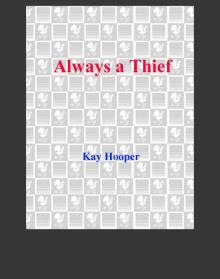 Always a Thief
Always a Thief Star-Crossed Lovers
Star-Crossed Lovers Blood Dreams
Blood Dreams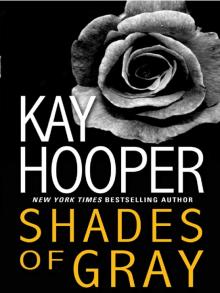 Shades of Gray
Shades of Gray Rebel Waltz
Rebel Waltz Chill of Fear
Chill of Fear Sleeping With Fear
Sleeping With Fear After Caroline
After Caroline Time After Time
Time After Time Haunting Rachel
Haunting Rachel Hunting Fear
Hunting Fear Out of the Shadows
Out of the Shadows Whisper of Evil
Whisper of Evil Blood Sins
Blood Sins Hiding in the Shadows
Hiding in the Shadows C.J.'s Fate C.J.'s Fate C.J.'s Fate
C.J.'s Fate C.J.'s Fate C.J.'s Fate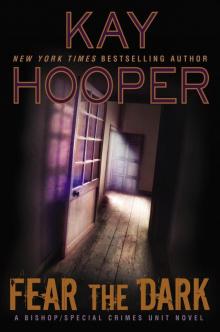 Fear the Dark
Fear the Dark Illegal Possession
Illegal Possession Stealing Shadows
Stealing Shadows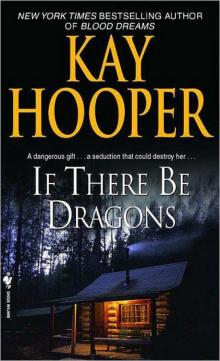 If There Be Dragons
If There Be Dragons Once a Thief
Once a Thief In Serena's Web
In Serena's Web On Wings of Magic on Wings of Magic
On Wings of Magic on Wings of Magic Hostage
Hostage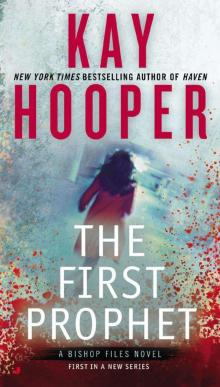 The First Prophet
The First Prophet Through the Looking Glass
Through the Looking Glass Golden Flames
Golden Flames Finding Laura
Finding Laura Haven
Haven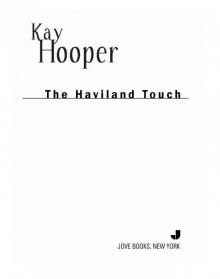 The Haviland Touch
The Haviland Touch The Lady and the Lion
The Lady and the Lion Haunted
Haunted Velvet Ligntning
Velvet Ligntning Blood Ties
Blood Ties Adelaide, the Enchantress
Adelaide, the Enchantress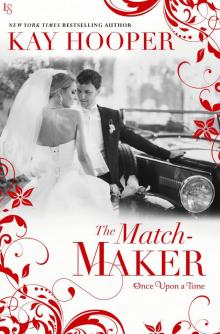 The Matchmaker
The Matchmaker Golden Threads
Golden Threads The Haunting of Josie
The Haunting of Josie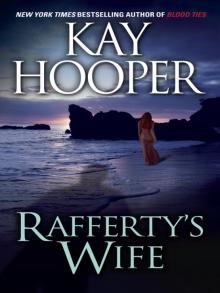 Rafferty's Wife
Rafferty's Wife Amanda
Amanda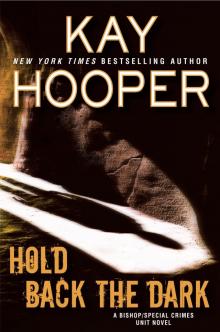 Hold Back the Dark
Hold Back the Dark Sense of Evil
Sense of Evil What Dreams May Come
What Dreams May Come Larger Than Life
Larger Than Life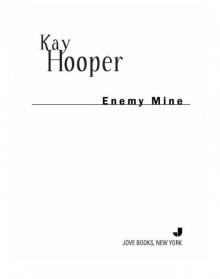 Enemy Mine
Enemy Mine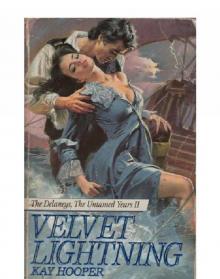 Velvet Lightning
Velvet Lightning The Fall of Lucas Kendrick
The Fall of Lucas Kendrick Aces High
Aces High Captain's Paradise: A Novel
Captain's Paradise: A Novel The Wizard of Seattle
The Wizard of Seattle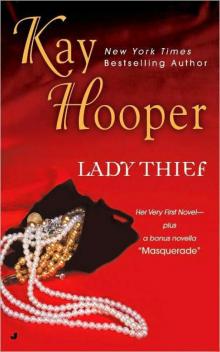 Lady Thief
Lady Thief Summer of the Unicorn
Summer of the Unicorn Outlaw Derek
Outlaw Derek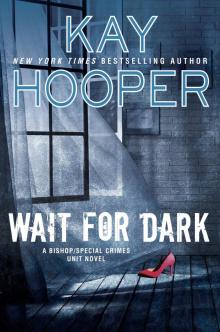 Wait for Dark
Wait for Dark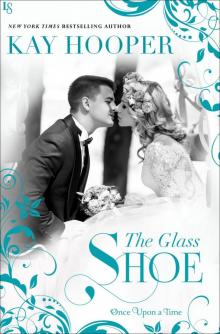 The Glass Shoe
The Glass Shoe It Takes a Thief
It Takes a Thief Zach's Law
Zach's Law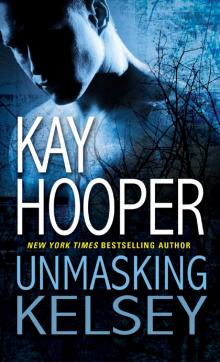 Unmasking Kelsey
Unmasking Kelsey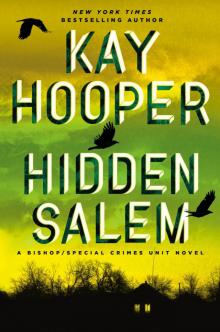 Hidden Salem
Hidden Salem